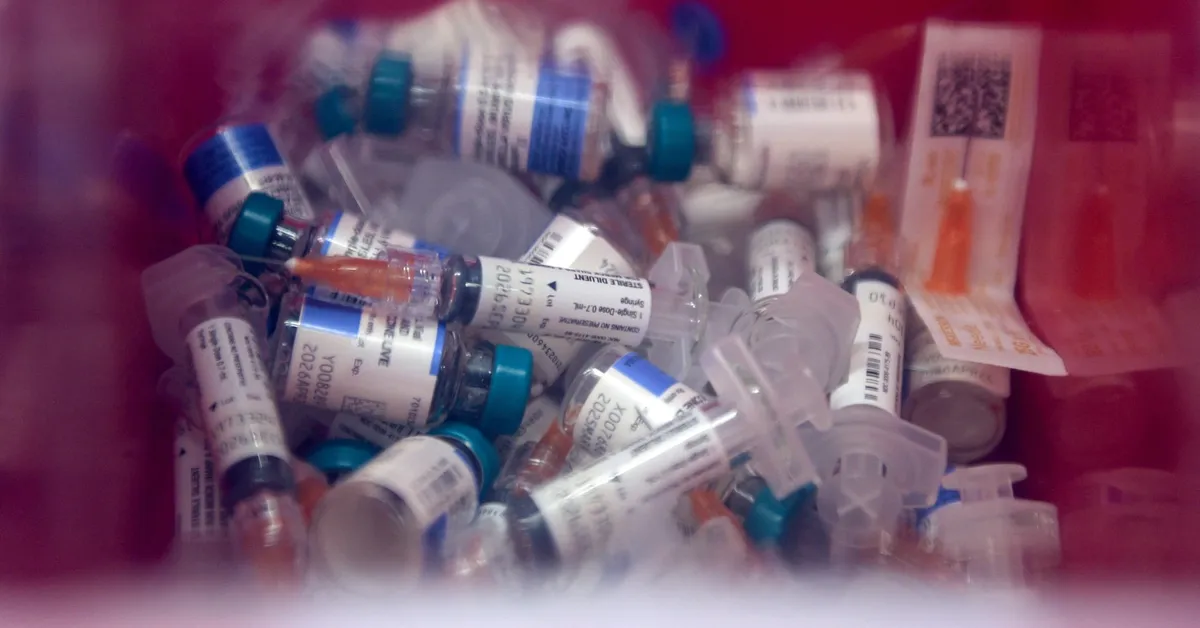
In recent weeks, Dr. Ali Sherif, a dedicated pediatrician in Hobbs, New Mexico, has seen a significant increase in demand for the measles vaccine. Normally administering around 50 doses each month, his clinic has experienced a remarkable 25% surge in vaccinations as local parents rush to immunize their toddlers and school-age children amid a concerning measles outbreak. This outbreak has already affected over 600 individuals and tragically resulted in three fatalities.
Like many physicians across the United States, Dr. Sherif relies on the Vaccines for Children program, a lesser-known federal initiative that provides vaccines at no cost to families. Funded by the U.S. Centers for Disease Control and Prevention (CDC), this program is essential for ensuring that children receive necessary immunizations without financial burden. With an annual budget of approximately $5 billion, the program accounts for nearly half of all vaccines administered to U.S. children annually.
The Vaccines for Children program facilitates the purchase of vaccines, including the MMR (measles, mumps, and rubella) vaccine, from pharmaceutical manufacturers like Merck and GlaxoSmithKline at discounted rates. For instance, under this program, a dose of the MMR vaccine costs about $26, compared to $95 in the private sector, according to CDC price lists.
Despite the program's critical role, ongoing cuts to federal health funding raise concerns about its future effectiveness. Recent personnel reductions at the Department of Health and Human Services (HHS) have left many experts worried. The Trump administration's decision to lay off approximately 10,000 employees from HHS, including significant cuts at the CDC, threatens the stability of essential public health initiatives. Although key CDC employees supporting the children’s vaccine program remained employed, about 20 staff members who promoted vaccine safety in high-risk communities were dismissed.
In addition to personnel cuts, HHS recently canceled around $11 billion in COVID-related grants that were crucial for vaccine clinics and outreach efforts, including those for measles. While a federal judge has temporarily blocked some of these cuts, the situation remains precarious. Dr. David Sugerman, a senior scientist at the CDC, emphasized the challenges in securing adequate resources for the ongoing measles outbreak, particularly in Texas.
Established in 1993 following a devastating U.S. measles epidemic, the Vaccines for Children program has been instrumental in reducing childhood fatalities from the disease. The CDC reported that over half of the children who contracted measles during the epidemic were unvaccinated, largely due to the financial burden of the vaccine. Shawna Maestas, manager of a large pediatric clinic in Albuquerque, noted that her clinic orders around $100,000 worth of vaccines each month through this federal initiative, stressing that families would delay vaccinations if they had to pay out of pocket.
Over the last decade, Texas has administered approximately 5.6 million doses of the MMR vaccine through the program, while New Mexico has received nearly 364,000 doses. Despite the rising demand, New Mexico health officials assured that vaccine supply and distribution remain uninterrupted.
As of now, Texas has reported a total of 624 measles cases, with 64 hospitalizations and two deaths among unvaccinated children. New Mexico has reported 65 cases and one death, marking the first measles fatalities in the U.S. since 2015. Dr. Alex Cvijanovich, a pediatrician in Albuquerque, expressed deep concern about the implications of scaling back the children’s vaccine program, particularly given New Mexico's high rates of childhood poverty.
Dr. Cvijanovich recalled a heartbreaking case from her early career, where a teenager died from complications linked to a measles infection he contracted as an infant. “There are really bad, scary things that we can protect our children from,” she emphasized.
In Hobbs, Dr. Sherif reveals that approximately 85% of his patients are enrolled in Medicaid, the federal and state health insurance program designed for low-income individuals. His clinic orders about $50,000 worth of vaccines each month through the Vaccines for Children program, an expense that would be unmanageable without federal support. "If I were to buy them by myself, I would not get enough for my patients," he stated, highlighting the critical nature of this program for the health of the community.